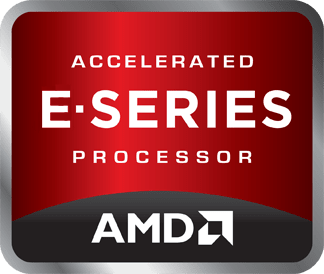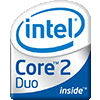
AMD 3020e Benchmark, Test and specs
Last updated:
The AMD 3020e was released in Q1/2020 and has 2 cores. The processor can process 4 threads simultaneously and uses a mainboard with the socket FT5. In the Geekbench 5 benchmark, the AMD 3020e achieved a result of 614 points (single-core) or 1,222 points (multi-core).

| Name: | AMD 3020e |
|---|---|
| Family: | AMD E (23) |
| CPU group: | AMD 3000e/Ce (3) |
| Architecture: | Dali (Zen) |
| Segment: | Mobile |
| Generation: | 4 |
| Predecessor: | -- |
| Successor: | -- |
CPU Cores and Base Frequency
The AMD 3020e has 2 cores. The clock frequency of the AMD 3020e is 1.20 GHz (2.60 GHz). An initial performance assessment can be made using the number of CPU cores.
| CPU Cores / Threads: | 2 / 4 |
|---|---|
| Core architecture: | normal |
| Cores: | 2x |
| Hyperthreading / SMT: | Yes |
|---|---|
| Overclocking: | No |
| Frequency: | 1.20 GHz |
| Turbo Frequency (1 Core): | 2.60 GHz |
| Turbo Frequency (2 Cores): | 1.80 GHz |
Internal Graphics
The AMD 3020e has an integrated graphics that the system can use to efficiently play back videos. The AMD 3020e has the AMD Radeon RX Vega 3 (Raven Ridge) installed, which has 3 streaming multiprocessors (192 shaders).
| GPU name: | AMD Radeon RX Vega 3 (Raven Ridge) |
|---|---|
| GPU frequency: | 1.00 GHz |
| GPU (Turbo): | No turbo |
| Compute units: | 3 |
| Shader: | 192 |
| Hardware Raytracing: | No |
| Release date: | Q1/2018 |
| Max. displays: | 3 |
|---|---|
| Generation: | 8 |
| Direct X: | 12 |
| Technology: | 14 nm |
| Max. GPU Memory: | 2 GB |
| Frame Generation: | No |
Hardware codec support
Processors with integrated graphics can process video codecs faster. Support for modern codecs can significantly increase system efficiency during video playback.
| h265 / HEVC (8 bit): | Decode / Encode |
|---|---|
| h265 / HEVC (10 bit): | Decode / Encode |
| h264: | Decode / Encode |
| VP8: | Decode / Encode |
| VP9: | Decode / Encode |
| AV1: | No |
|---|---|
| AVC: | Decode / Encode |
| VC-1: | Decode |
| JPEG: | Decode / Encode |
Memory & PCIeThe AMD 3020e supports a maximum of 32 GB memory. Depending on the mainboard, the processor can use a maximum of 2 (Dual Channel) memory channels. This results in a maximum bandwidth of the main memory of 38.4 GB/s. |
|
| Memory type: | Memory bandwidth: |
|---|---|
| DDR4-2400 | 38.4 GB/s |
| Max. Memory: | 32 GB |
| Memory channels: | 2 (Dual Channel) |
| ECC: | Yes |
| PCIe: | 3.0 x 8 |
| PCIe Bandwidth: | 7.9 GB/s |
Thermal ManagementThe AMD 3020e has a TDP of 6 W. Based on the TDP, the system manufacturer can and must adapt the cooling solution to the processor. |
|
|---|---|
| TDP (PL1 / PBP): | 6 W |
| TDP (PL2): | -- |
| TDP up: | -- |
| TDP down: | -- |
| Tjunction max.: | 105 °C |
Technical details
Modern production reduces the waste heat of a processor and increases its efficiency. The AMD 3020e is made in 14 nm and has 5.00 MB cache.
| Technology: | 14 nm |
|---|---|
| Chip design: | |
| Socket: | FT5 |
| L2-Cache: | 1.00 MB |
| L3-Cache: | 4.00 MB |
| AES-NI: | Yes |
| Operating systems: |
| Virtualization: | AMD-V, SVM |
|---|---|
| Instruction set (ISA): | x86-64 (64 bit) |
| ISA extensions: | SSE4a, SSE4.1, SSE4.2, AVX2, FMA3 |
| Release date: | Q1/2020 |
| Release price: | -- |
| Part Number: | -- |
| Documents: | -- |
Rate this processor
Benchmark results

The benchmark results for the AMD 3020e have been carefully checked by us. We only publish benchmark results that have been created by us or that have been submitted by a visitor and then checked by a team member. All results are based on and fullfill our benchmark guidelines.
Geekbench 5, 64bit (Single-Core)
Geekbench 5 is a cross plattform benchmark that heavily uses the systems memory. A fast memory will push the result a lot. The single-core test only uses one CPU core, the amount of cores or hyperthreading ability doesn't count.

|
Intel Xeon E5-2660 v2
10C 20T @ 3.00 GHz |
||

|
Intel Core i3-6100U
2C 4T @ 2.30 GHz |
||

|
Intel Core i5-2540M
2C 4T @ 3.30 GHz |
||
|
|
AMD 3020e
2C 4T @ 2.60 GHz |
||

|
Intel Core i7-980X
6C 12T @ 3.60 GHz |
||

|
Intel Core i7-980
6C 12T @ 3.60 GHz |
||

|
Intel Celeron N6210
2C 2T @ 2.60 GHz |
||
Geekbench 5, 64bit (Multi-Core)
Geekbench 5 is a cross plattform benchmark that heavily uses the systems memory. A fast memory will push the result a lot. The multi-core test involves all CPU cores and taks a big advantage of hyperthreading.

|
Intel Celeron N6211
2C 2T @ 2.40 GHz |
||

|
Intel Celeron J3455
4C 4T @ 2.20 GHz |
||

|
Intel Celeron J3455E
4C 4T @ 2.20 GHz |
||
|
|
AMD 3020e
2C 4T @ 1.80 GHz |
||

|
AMD Phenom II X4 B95
4C 4T @ 3.00 GHz |
||

|
Intel Core i5-4210U
2C 4T @ 2.35 GHz |
||

|
Intel Celeron G1840
2C 2T @ 2.80 GHz |
||
iGPU - FP32 Performance (Single-precision GFLOPS)
The theoretical computing performance of the internal graphics unit of the processor with simple accuracy (32 bit) in GFLOPS. GFLOPS indicates how many billion floating point operations the iGPU can perform per second.

|
AMD A8-5500
AMD Radeon HD 7560D @ 0.76 GHz |
||

|
AMD A8-5500B
AMD Radeon HD 7560D @ 0.76 GHz |
||

|
AMD A8-5600K
AMD Radeon HD 7560D @ 0.76 GHz |
||
|
|
AMD 3020e
AMD Radeon RX Vega 3 (Raven Ridge) @ 1.00 GHz |
||

|
Intel Core i5-14450HX
Intel UHD Graphics 13th Gen (16 EU) @ 1.50 GHz |
||

|
Intel Atom x7425E
Intel UHD Graphics 24 EUs (Alder Lake) @ 1.00 GHz |
||

|
Intel Processor N200
Intel UHD Graphics 32 EUs (Alder Lake) @ 0.75 GHz |
||
Estimated results for PassMark CPU Mark
Some of the CPUs listed below have been benchmarked by CPU-monkey. However the majority of CPUs have not been tested and the results have been estimated by a CPU-monkey’s secret proprietary formula. As such they do not accurately reflect the actual Passmark CPU mark values and are not endorsed by PassMark Software Pty Ltd.

|
AMD A8-5545M
4C 4T @ 2.70 GHz |
||

|
Intel Core i5-5250U
2C 4T @ 2.50 GHz |
||

|
Intel Xeon E5450
4C 4T @ 3.00 GHz |
||
|
|
AMD 3020e
2C 4T @ 1.80 GHz |
||

|
Intel Core i7-4500U
2C 4T @ 2.60 GHz |
||

|
Intel Core i7-2640M
2C 4T @ 2.80 GHz |
||

|
MediaTek Helio G80
8C 8T @ 2.00 GHz |
||
CPU-Z Benchmark 17 (Multi-Core)
The CPU-Z benchmark measures a processor's performance by measuring the time it takes the system to complete all benchmark calculations. The faster the benchmark is completed, the higher the score.

|
Intel Core2 Duo E8400
2C 2T @ 3.00 GHz |
||

|
Intel Pentium 2020M
2C 2T @ 2.40 GHz |
||

|
Intel Core i3-4005U
2C 4T @ 1.70 GHz |
||
|
|
AMD 3020e
2C 4T @ 1.20 GHz |
||

|
Intel Core i3-4010U
2C 4T @ 1.70 GHz |
||

|
Intel Core2 Duo E7400
2C 2T @ 2.80 GHz |
||

|
Intel Pentium E5500
2C 2T @ 2.80 GHz |
||
Benchmarks

Geekbench 5 (SC)
2,488 entries
2,488 entries

Geekbench 5 (MC)
2,461 entries
2,461 entries

FP32 SP (iGPU)
2,026 entries
2,026 entries

3DMark Timespy (iGPU)
512 entries
512 entries

PassMark CPU-Mark
2,391 entries
2,391 entries

CPU-Z Benchmark 17 (MC)
733 entries
733 entries
Description of the processor
The AMD 3020e is an AMD E-series processor and was released in the first quarter of 2020. It is a processor for mobile devices and it can be installed on all mainboards with the FT5 socket, permanently soldered. It is manufactured using the 14-nanometer process and is based on the Zen architecture, codenamed "Dali".The processor has 2 cores and supports hyperthreading technology, whereby the 2 physical cores can become 4 logical cores if necessary, in order to be able to carry out more computing operations at the same time. The two cores have a standard clock frequency of 1.20 gigahertz and can increase the clock rate in turbo mode to up to 1.80 gigahertz (both cores utilized) or 2.60 gigahertz (only one core utilized).
The somewhat older AMD Radeon Vega 3 Graphics is used as the graphics unit in the mobile AMD 3020e processor. This iGPU was first used in a processor in the first quarter of 2018 and clocked at 1.00 gigahertz. It has 3 execution units and 192 shader units and is manufactured using the 14-nanometer process. The graphics achieves an FP32 processing power (single precision) of 384 gigaflops and is therefore not very powerful. In return, the graphics chip supports the decoding and encoding of almost all important video codecs. (See table above)
Officially, the AMD 3020e supports the operation of up to 32 gigabytes of RAM, although more memory can often be used in practice. DDR4 modules with up to 2400 megahertz are officially supported as the type. As is typical for AMD, memory modules with automatic error correction, so-called ECC modules, are also supported.
The processor has 8 PCIe Express lanes in version 3.0 for connecting internal high-performance data carriers (NVME M.2) or other expansion cards.
Popular comparisons
back to index







